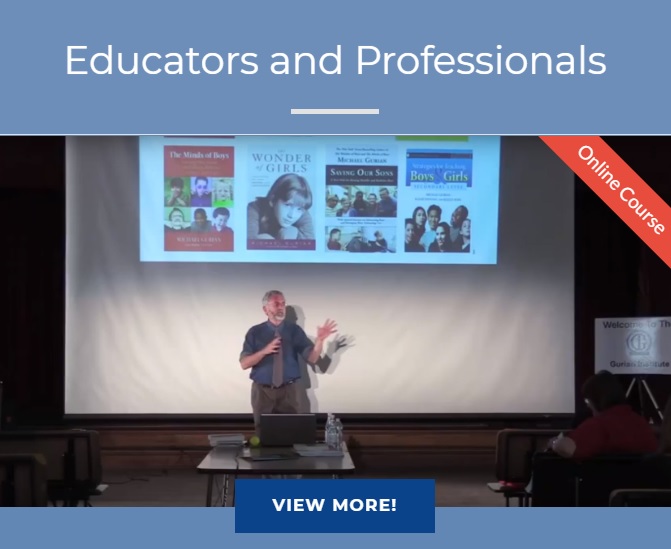
Troy Kemp is an internationally recognized keynote speaker, and our Sunday keynoter at the Summer Institute this June. His dynamic approach to teaching and mentoring boys has led him to his position as Executive Director of the National Center for the Development of Boys (www.understandingboys.org). Previously, he spent 25 years in the classroom, on the field (Troy is an eight-time state champion and three-time coach of the year recipient in Lacrosse), and in administration where he nurtured, motivated, and empowered two generations of students. Troy is one of the most dynamic people I know. Here is more from Troy.
–Michael Gurian
How do we best motivate students to accomplish difficult tasks? How do we coach and counsel students to rise to every challenge? I have been motivating and inspiring students and educators to expand our playbook inside and outside the classroom for more than two decades. Everywhere I go, I learn as much as I teach. Education inspires me!
Growing up in a migrant working family, I spent my childhood in public school on Long Island where I witnessed and experienced many of the challenges and tragedies that boys often face in our culture. Staying focused was never easy, but I had a few angels along the way, including teachers and administrators who chose to go beyond their job description to ensure at least one young man from Riverhead made it to the next level. I am forever grateful.
I began my teaching career at the Wilmington Friends School in Delaware 25 years ago. My goal was to be the teacher I always wanted to have, but I was not trained as an educator. I had a mathematics degree and a heart full of hope.
My move to the McCallie School in Chattanooga, Tennessee forever changed me as both an educator and as a researcher in boys’ development. At McCallie, I explored learning styles and how to effectively engage students in my all-male classes. Then as Dean of Admission and Associate Headmaster, I met young men and families from across the world who all shared a need to find a school and community dedicated to helping boys be their best.
As a father of a son and two daughters, I have become increasingly aware of the unique challenges our parents and children face today. Boys are underperforming, disengaging, and falling behind in all aspects of life. Educators, administrators, and parents everywhere want and need information and best practices for educating and raising boys.
The National Center for the Development of Boys (www.understandingboys.org) was born in 2014 with the passion to join others around the country in taking up this cause. The Center connects and collaborates with renowned researchers, thought leaders, educators and organizations to deliver services that change boys’ lives from day one.
Our collaboration with the Gurian Institute goes back to the late 1990s when McCallie School began assimilating Michael Gurian’s work into our classrooms. Now, twenty years later, I’m pleased to say that the Center is a Gurian Institute training partner.
Tai Chi, Kung Fu, and Switzerland: The Art of Getting Results in the Classroom and Beyond
I will be doing two presentations at the Gurian Summer Institute. My keynote, which carries the same title as this blog post opens a conversation about parenting, coaching, and classroom management styles.
Are you a Tai Chi motivator, a Kung Fu parent, a Switzerland teacher? No labels! But…who are you? Who am I?
We are each all three kinds of people at different times, of course. But knowing the ins and outs of each style can utterly change our classroom management, our parenting, our coaching, and our mentoring of young people.
You will leave this keynote with a dynamic approach to accomplishment of difficult tasks, and strategies for inspiring students and kids to do the same.
I believe we can have both a growth mindset and a winning mindset, and we can provide these dual, complementary mindsets to our students.
What Boys Need to Make a Successful High School to College Transition
I have been struck over the last two decades with the growing dearth of male engagement in college and university life. Because of my experience in enrollment and retention of male students, I have been able to partner with consultants to help educators and administrators at our nation’s colleges and universities implement more effective ways of engaging and educating young men.
This workshop will drill down into how to prepare our students for the transition. The strategies we’ll explore together can work for girls and young women, as well, but I’ll focus on boys because we are seeing such an exodus of males from college and college tracks today, especially males of color. Many of the most prestigious black colleges, for instance, are between 60 and 70% female now.
This is good for our girls, but it is not good for our boys. We can help all our young people succeed, both in “hard” and “soft” skills—the very skills they will also need in the workplace.
To read the National Center’s White Paper on the State of Boyhood in America, please click: https://understandingboys.org/wp-content/uploads/2017/11/ncdbwhitepaper_112717.pdf.
I hope to see you in June!










“The strategies we’ll explore can help girls and young women too but I’ll focus on boys….”Troy
No, this is not a heuristic perspective. If boys and girls responded to the same approach would girls be thriving while boys are foundering in the same environment? 70% of grads at black colleges are female? Thats more than thriving. In the space of little more than a generation they have practically pushed men out of higher education. Did I say ‘pushed’? When you consider that, unlike school, success in college means control of limited resources through scholarships, fellowships,grants, bursaries, access to advisors etc. girls are kicking boys to the curb.
No, if the Summer Institute is to help men help boys —and I say ‘men’ because we know boys need people they can model themselves on and the vaste majority of teachers today are female—then we need more than an update of the same old strategies of the football coach. These worked well in the past because they corresponded to what existed in the greater society. No doubt it still works for some… However, when a Gurian Summer Institute is directed by a woman and, more importantly, a woman who boasts of her ability to teach men and women to work together; when 4 out of 5 presenters are women, it is apparent that the extraordinary vision of the Gurian perspective together with the exceptional courage that it took to champion it have been eclipsed by the all-consuming power of the feminist narrative.